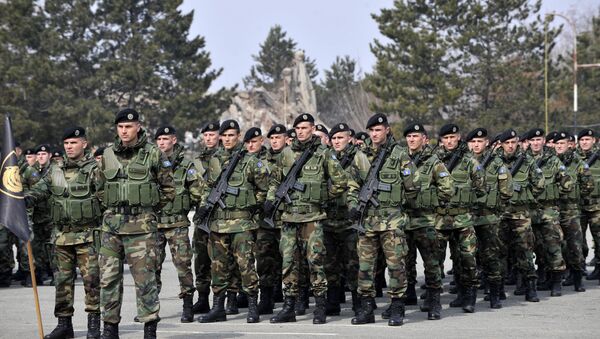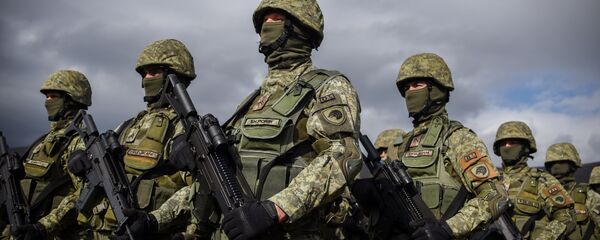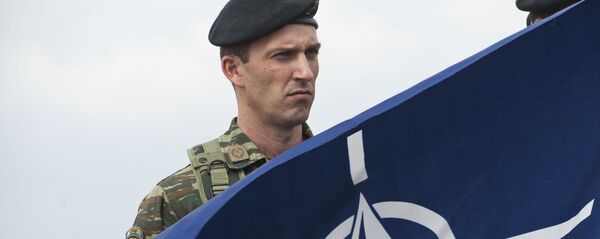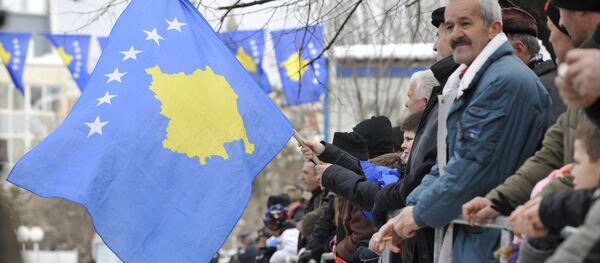Last week, Kosovo President Hashim Thaci sent the self-proclaimed republic's parliament a bill on transforming the Kosovo Security Force (KSF) into a national army.
The plan was criticized by NATO chief Jens Stoltenberg, who expressed concern over the bill and urged Pristina to maintain ties with Belgrade.
#Kosovo already has an army — it's called #NATO. Part of my interview for @RT_com: pic.twitter.com/wHcMwjAymN
— Boris Malagurski (@malagurski) 8 марта 2017 г.
In another development last week, Serbian Prime Minister Aleksandar Vucic said that Belgrade expected the European Union, Russia and the United States to contribute to Serbia's efforts to counter the formation of a national army in Kosovo.
Speaking to Sputnik Serbia, Goran Jevtovic said that by default, Kosovo's army is already in place and that even though this army is now equipped with heavy weapons, its human resources and infrastructure raise serious concerns.
"This army was formed by NATO," Jevtovic said, adding that the Kosovo Security Force was "created in accordance with the principles of the alliance."
He recalled that "the entire army of [former] Yugoslavia was destroyed at NATO's behest by 2007."
"We simply liquated a serious force that proved remarkably effective when defending itself, even from an extremely powerful enemy," Jevtovic said.
Jevtovic specifically pointed to the current Serbian authorities' drive to revive the army, something that he said takes time.
Therefore Serbia could build relations with Russia using Syria's model, namely, to embark on creating a military alliance with Moscow, which would be in line with Serbia's non-aligned status.
"Military neutrality does not mean anything, because no one guarantees you support in the event of someone's aggression. Unfortunately, we know that some NATO members are claiming parts of our territory, which is why talking about peace and military neutrality makes no sense," Jevtovic concluded.
Earlier, Aleksandar Popovic, a presidential candidate from the Democratic Party of Serbia, told Sputnik that the United States and NATO tacitly approved of Kosovo going ahead with its plan to transform the Kosovo Security Force into a national army.
Kosovo's president seeks NATO support for creating army https://t.co/gYcLpntGdt pic.twitter.com/ZgfN98ReyL
— Military Times (@MilitaryTimes) 14 марта 2017 г.
According to Popovic, the Serbian government should insist that negotiations with Pristina be held in accordance with UN Security Council Resolution 1244 which, together with the Kumanovo Military Technical Agreement, ended the war in Kosovo in 1999, and thus move the negotiations back "from Brussels to New York."
Kosovo unilaterally proclaimed independence from Serbia in 2008 and is recognized by over 100 UN member states. Russia, China, Israel, Iran, Spain, Greece and other countries do not recognize Kosovo's independence.
Never miss a story again — sign up to our Telegram channel and we'll keep you up to speed!







